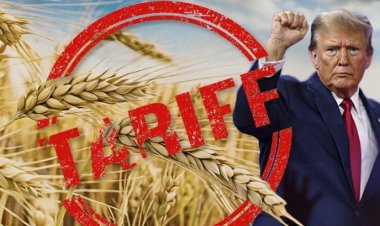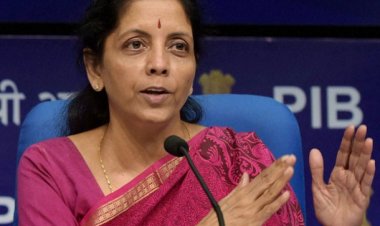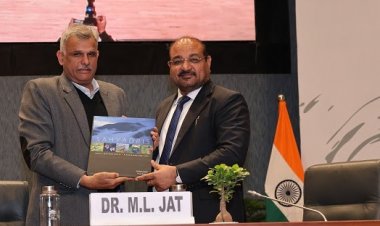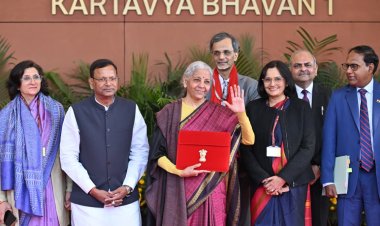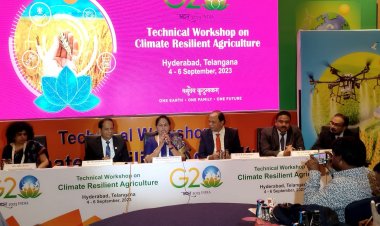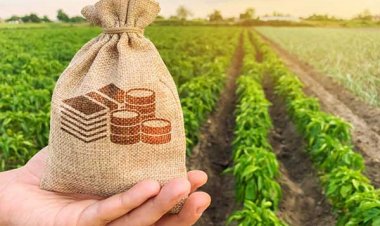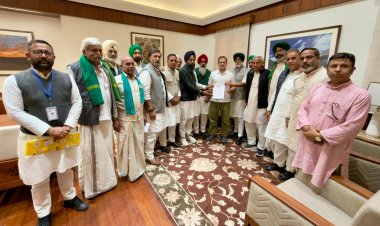Seeking comments from States on exemption rule of SDN1 and SDN2 category of genome-edited plants is uncalled for: SABC
In a letter written to the Secretary, MoEFCC, on October 2, Bhagirath Choudhary, a member of the task force on genome-edited plants, seeks to clarify the misinterpretation of a particular section on “exemption” in the Draft Guidelines on Genome Edited Plants prepared by DBT. He concludes that seeking comments from the State(s) on the exemption rule of SDN1 and SDN2 category of genome-edited plants is uncalled for.
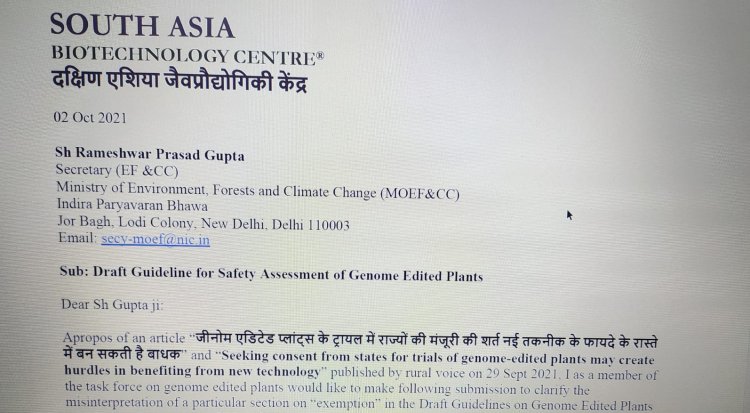
Genetically modified (GM) crops have been a matter of debate for long. But gene-editing, which falls in a different territory, brought some hope. The SDN1 and SDN2 categories, as per the Department of Biotechnology (DBT) guidelines, should be exempted from the appraisal of the Genetic Engineering Appraisal Committee (GEAC). This would help Indian agriculture accelerate the process of reaping benefits from science.
Unfortunately, the Ministry of Environment, Forest and Climate Change (MoEFCC) seems to believe otherwise. According to it, consent for field trials from the state concerned is also necessary. And it, therefore, sent a letter to the states on September 15 seeking their opinion in this regard. It was once again confirmed that policy issues could not be decided on the basis of scientific rationality. RuralVoice did a detailed story on this issue that may be accessed at https://eng.ruralvoice.in/national-23/seeking-consent-from-states-for-trials-of-genome-edited-plants-may-create-hurdles-in-benefiting-from-new-technology.html
Bhagirath Choudhary, Founder and Director, South Asia Biotechnology Centre, happens to be a member of the drafting committee of the guidelines on genome editing two years ago. He feels the guidelines remain neglected on the policy front. In his opinion, the MoEFCC seeking the States’ views on the exemption clause is uncalled for.
It is in this context that Choudhary wrote a letter to the Secretary, MoEFCC, on October 2 wherein he cited the abovementioned article published by RuralVoice and, being a member of the task force on genome-edited plants, sought to clarify the misinterpretation of a particular section on “exemption” in the Draft Guidelines on Genome Edited Plants prepared by DBT.
Choudhary’s submission to the Secretary begins: “The application of genome editing of plants falls under the jurisdiction of the EPA (Environmental Protection Act) Rules 1989 and hence the products of genome editing shall be regulated appropriately to ensure (the) safety of human, animal and plant health.” This being the case, the drafting committee intended to regulate the plants falling under SDN1 and SDN2 category if they contained foreign DNA/vector DNA/transgene.
However, says Choudhary in the submission, “it was unanimously agreed by the drafting committee that the genome-edited plants, especially under SDN1 and SDN2 category, should not be considered transgenic once they are declared free from foreign DNA/vector DNA/ transgene at any level of regulation under the EPA Rules 1989.” At that point, the committee decided, “the genome-edited plants should be exited from the transgene regulatory system of the EPA Rules 1989 and shall be subsequently evaluated” as per the varietal release procedure under the Seed Act 1968.
It has been scientifically established that there are no foreign genes involved in SDN1 and SDN2 categories. Thus, there is no need to place it equivalent to the transgenic process.
The word “Exemption”, which describes section 20 of the EPA Rules 1989, was referred to as a mechanism by the drafting committee to absolve SDN1 and SDN2 category of genome-edited plants from further regulation under EPA Rules 1989, says Choudhary. He also quotes a precedent from the year 2006: Exemptions have been granted to rDNA pharma products under the said section 20, based on the report of the Task Force on Recombinant Pharma under the chairmanship of Dr RA Mashelkar.
Choudhary goes on to say that the scientific community, too, is of the same opinion. The National Academy of Agricultural Sciences (NAAS), the Trust for Advancement of Agricultural Sciences (TAAS), the Tata Institute for Genetics and Society (TIGS) and the Asia-Pacific Association of Agricultural Research Institutions (APAARI) have shared similar views and have sought exit at an appropriate level of regulation for SDN 1 and SDN 2 categories of genome-edited plants under section 20 of EPA Rules 1989 once they are declared free from transgene.
Therefore, Choudhary concludes in the letter, “seeking comments from the State(s) on exemption rule of SDN1 and SDN2 category of genome-edited plants is uncalled for and should not become a pretext for further delay in the release of the guidelines for safety assessment of genome-edited plants.”
One has to now wait and watch if Choudhary’s submission makes MoEFCC revise its stance. If this does not happen, there are bound to be delays and confusion in consent for field trials of these genome-edited plants. Agricultural prosperity may well be sacrificed at the altar of politics.



 Join the RuralVoice whatsapp group
Join the RuralVoice whatsapp group

















